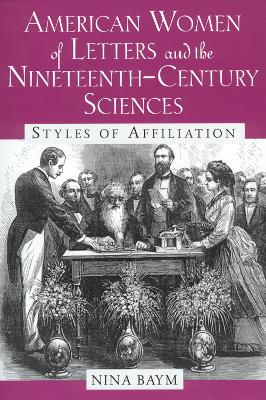During the nineteenth century, the content and institutional organization of the sciences evolved dramatically, altering the public's understanding of knowledge. As science grew in importance, many women of letters tried to incorporate it into a female worldview. In her new book, Nina Baym explores the responses to science displayed in a range of writings by American women. Conceding that they could not become scientists, women insisted, however, that they were capable of understanding science and participating in its discourse. They used their access to publishing to advocate the study and transmission of scientific information to the general public. Baym's book includes biographies and a full exploration of these women's works. Among those considered are: * Almira Phelps, author of Familiar Lectures on Botany (it sold 350,000 copies) * Sarah Hale, who filled Godey's Lady's Book with science articles * Catharine Esther Beecher, who based her domestic advice on scientific information * Susan Fenimore Cooper, who promoted scientific literacy as necessary for living a civilized life * Elizabeth Cary Agassiz, the actual ghostwriter of her husband's popular science essays, and * Emily Dickinson, whose poetry is replete with scientific images. Baym also investigates science in women's novels, writing by and about women doctors, and the scientific claims advanced by women's spiritualist movements. This book truly breaks new ground, outlining a field of inquiry that few have noted exists.
- ISBN13 9780813529851
- Publish Date 1 October 2001
- Publish Status Active
- Publish Country US
- Imprint Rutgers University Press
- Format Paperback
- Pages 272
- Language English
